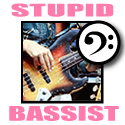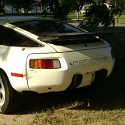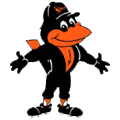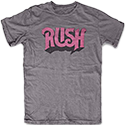|
http://www.bassbooks.com/shopping/shopdisplayproducts.asp?id=174&cat=SIGHT+READING
|
|
|
|

|
| # ? May 10, 2024 20:18 |
|
Dopo posted:Can anyone recommend a good intro to bass book that is written entirely in sheet music rather than tabs? I play the tuba so I'm already really comfortable reading bass clef. Hal Leonard's bass method. It has a few tabs, but they're by far the exception, not the rule. It covers pretty much everything you might want to know about bass.
|
|
|
|
Jan posted:Hal Leonard's bass method. No real experience with this book, but if it's coming from Ed Friedland, it's bound to be pretty drat good. I'm actually thinking about picking this up myself as a nice little refresher. http://www.youtube.com/user/BassGuitarMag Ed has some sick skills.
|
|
|
|
The Hal Leonard one looks like it might be better to start with. Thanks!
|
|
|
|
Scarf posted:No real experience with this book, but if it's coming from Ed Friedland, it's bound to be pretty drat good. I'm actually thinking about picking this up myself as a nice little refresher. I have one of his books on walking bass lines. Great format and cd to accompany it. He's also a great teacher too. I had the pleasure of being his student for a few months some time ago.
|
|
|
|
Schatten posted:I have one of his books on walking bass lines. Great format and cd to accompany it. He's also a great teacher too. I had the pleasure of being his student for a few months some time ago. I'm thinking about picking up his Groove book. Any experience w/ it?
|
|
|
|
Nada Scarf. I do prefer his format and how it is layed out over the other Hal Leonard/Mel Bay books. It seems to build upon each as a stepping stone. But this is just what I prefer.
|
|
|
|
Scarf posted:I'm thinking about picking up his Groove book. Any experience w/ it? I ordered it from Amazon, so I'll let you know how it is once it arrives.
|
|
|
|
Having only owned one bass so far, I'm not very good at defining tones. I'm trying to get something, uh... twangy? I'm thinking like the intro riff to Megadeth's Peace Sells. Roughly how would you get something like that with a three band equalizer and/or some effects?
|
|
|
|
Jan posted:Having only owned one bass so far, I'm not very good at defining tones. I'm trying to get something, uh... twangy? I'm thinking like the intro riff to Megadeth's Peace Sells. Depends what you are playing through. At this point, strings and a pick. Dave Ellefson has some great chops. http://www.youtube.com/user/davidellefson http://mrlamius.blogspot.com/2009/06/bass-interview-with-dave-ellefson.html
|
|
|
|
Jan posted:Having only owned one bass so far, I'm not very good at defining tones. I'm trying to get something, uh... twangy? I'm thinking like the intro riff to Megadeth's Peace Sells. Bright strings, boost the mids and highs slightly, and use a pick. And maybe try picking closer to the bridge. Actually, boost the highs a bit and MAYBE scoop the mids just a tick. Scarf fucked around with this message at 03:39 on Jun 30, 2009 |
|
|
|
Schatten posted:Depends what you are playing through. At this point, strings and a pick. Yeah if you want to see what using a pick can do for your tone, just look at the difference between Megadeth's first album and Peace Sells. I am pretty sure it is the same bass and amp because the band was too poor from drugs to get vastly different equipment back then.
|
|
|
|
I never listened to Megadeth much, really. I only gave Peace Sells as an example because it was the closest thing I had in mind. (That, and like every amateur bassist and their dog I've been messing with its intro riff.  ) My bass doesn't have a very large difference in tones between picking and finger style, really. But that limited sound range is pretty much what I signed for by getting an Epiphone SG, methinks. ) My bass doesn't have a very large difference in tones between picking and finger style, really. But that limited sound range is pretty much what I signed for by getting an Epiphone SG, methinks. I think I'll look for a more versatile bass before I upgrade to a Gibson... Unless I find a deal on a used SG in the meantime -- not letting that '67 for $900 slip out of my hands again if it ever comes up.
|
|
|
|
Since there isn't a little (or stupid) questions megathread or anything I'll ask here; is it possible to play a bass through a guitar amp? I'd like to get a bass and I've already got an epiphone valve standard amp. Obviously it probably won't have as good a tone as a bass amp, but will it blow up or anything?
|
|
|
|
theunderwaterbear posted:is it possible to play a bass through a guitar amp?
|
|
|
|
theunderwaterbear posted:Since there isn't a little (or stupid) questions megathread or anything I'll ask here; is it possible to play a bass through a guitar amp? I'd like to get a bass and I've already got an epiphone valve standard amp. Obviously it probably won't have as good a tone as a bass amp, but will it blow up or anything? It can wreck the cab if you're not extremely careful with volume.
|
|
|
|
theunderwaterbear posted:Since there isn't a little (or stupid) questions megathread or anything I'll ask here; is it possible to play a bass through a guitar amp? I'd like to get a bass and I've already got an epiphone valve standard amp. Obviously it probably won't have as good a tone as a bass amp, but will it blow up or anything? Keep the volume low, and EQ it low on bass.
|
|
|
|
Like they said, it'll hurt the speakers, but the amp will be fine.
|
|
|
|
I was thinking of getting a bass to play around with (and jam more with a friends band that already has too many guitarists). I have a Boss GT10 modeler - is a bass going to sound halfway decent through it into a PA system? I figured I can drastically tweak the EQ and preamp settings to get an acceptable sound, but I haven't tried it yet. Is there any obvious problem with doing this? I know theres a bass version of the GT10, but I'm just looking to mess around really so I'm not keen on spending the money/time to buy/trade my regular version for one.
|
|
|
|
Fran posted:I was thinking of getting a bass to play around with (and jam more with a friends band that already has too many guitarists). I have a Boss GT10 modeler - is a bass going to sound halfway decent through it into a PA system? I figured I can drastically tweak the EQ and preamp settings to get an acceptable sound, but I haven't tried it yet. Is there any obvious problem with doing this? I know theres a bass version of the GT10, but I'm just looking to mess around really so I'm not keen on spending the money/time to buy/trade my regular version for one. If you have a full PA, just go directly into the PA. EQ it with the mixer.
|
|
|
|
Ok, so I received "Bass Grooves" by Ed Friedland on Monday and have been poring through it since then to provide you folks (i.e., threetoes) a review. First off, I guess I would say that the book is useful to beginner, intermediate, and advanced players. For advanced players, there won't be a lot in here that you haven't heard before, but can be used as a "workbook" in one's practice routine. If you sit down and draw a blank in front of your metronome when you want to work specifically on timing and groove, then this book gives you a lot of concrete material to go through. For beginners, there's likely to be a lot of styles here that you might not have played before. Furthermore, he introduces techniques that will help to develop your rhythmic independence, such as practicing with the metronome just on 2 & 4, or just 2, etc. For intermediate players, some things that might be new are his use of rhythmic syllables instead of standard counting words. For example, sixteenth notes are counted "dig a chick a, dig a chick a" instead of the usual "1 ee an a, 2 ee an a". There are a lot of variations that he presents, and I find that they do help in breaking in to the "sound" of particular rhythmic figures. It's important to note that the book relies heavily on the use of a drum machine (or sequencer) to recreate drum parts from various musical styles. So much so, in fact, that if you don't own a drum machine or something that can sequence drum sounds, then you might as well not buy the book (I use Cubase with some sampled drum sounds). The point of this is to get the bassist familiar with the drum dynamics and patterns of a given style, to play them as authentically as possible and to determine the limits of what you can and can't do. As the blurb on the back states, the book is "a style encyclopedia that leads you through the inner workings of the essential bass grooves..." Ed comments on why he took this approach: "One of the goals of this book is to familiarize you with different grooves by showing you the drum parts along with the bass lines...when you've programmed a drum groove yourself, you gain an intimate understanding of each element, how hi-hat, snare, kick drum, toms, etc. all combine to create a unified feel that influences your interpretation of a bass line. Knowing how to play many different styles presents you with a greatly expanded set of opportunities." It's also worth noting that the included CD isn't intended to be used as a play-a-long, Aebersold style. Since the drum and bass parts are already notated, the CD is pretty much redundant, as Ed himself points out. Its main purpose seems to be for verification - if you want to check an example see just how ghosted that snare drum needs to be, then you can give it a listen. There are three main sections to the book. In the first, he gives an overall look at rhythm and groove in general and how to approach rhythmic concepts. Section 2 is the "style encyclopedia" and goes through examples of a number of popular styles - Zydeco, Soca, Reggae, Blues, etc. The third section has some interviews with notable bassists such as Phil Chen, Harvey Brooks, and Victor Bailey on the subject of groove. There's also an epilogue of sorts, discussing Ed's philosophical views and bass playing and groove but to be honest, it's a lot of fluff. The first section is a very good and thorough introduction on how to analyze and break apart rhythmic concepts to solidify your sense of time. He goes through eighth notes, triplets, sixteenth notes and various syncopations and assigns them syllables that can be used to get a feel for their sound. He also goes through the importance of note length, rests, and consistency. He also stresses the importance of being able to play grooves at a wide variety of tempoes. Playing a driving Motown beat, for example, at 40 BPM is more difficult than it seems (as is speeding it up to 180 BPM), but it's an important exercise in hearing a tempo and detecting the rhythmic current underneath. Here's a typical example from the first section: 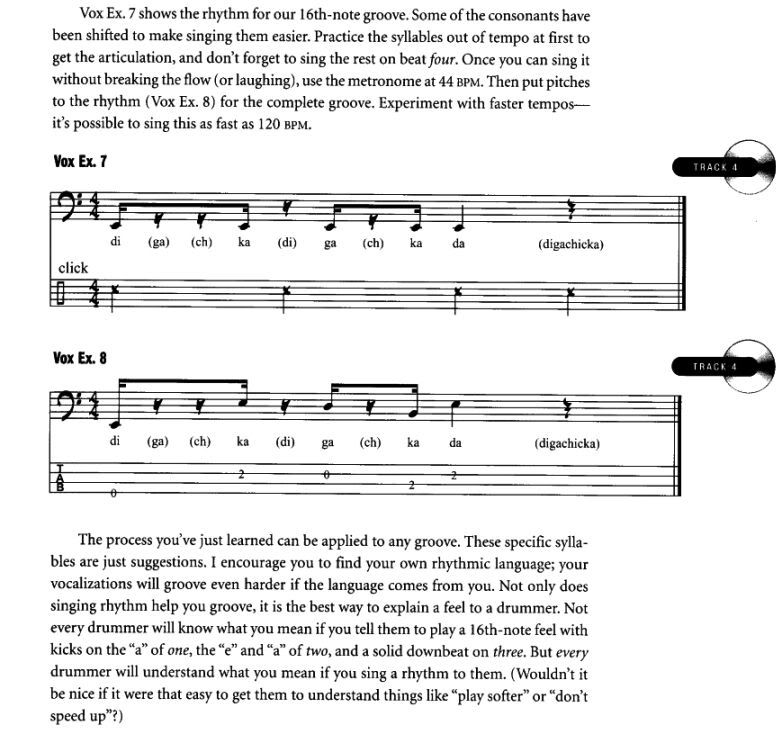 The second section, as mentioned already, provides drum parts and bass lines for common styles, and the variations thereof. You might not have thought that Go-Go and the Twist were in that much demand, but I'm willing to take Ed's word for it. He also uses nicknames for grooves that may seem unfamiliar - "the flat tire groove", "bom bom", "vinny-boom batz", but he goes through them in some detail and I think it emphasizes his organic, sing-able approach to rhythm. For any given style, he'll show different ways a drum groove might be played and how the bass can accompany it. He'll sometimes show how much you can get away with, but overall emphasizes simplicity and simply letting the groove breathe. Here's a typical excerpt from section two: 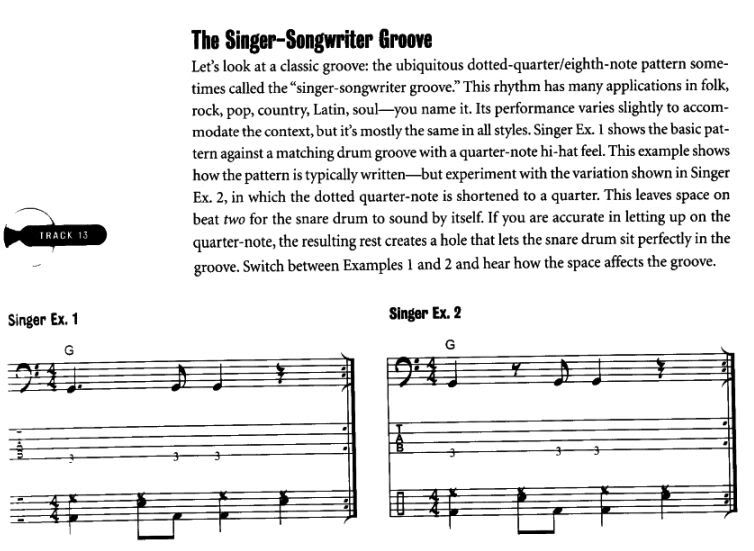 Section three contains interviews with Phil Chen, Harvey Brooks, Victor Bailey, Hutch Hutchinson, Gary Grainger, and Jack Casady, on the basic subject of groove and rhythm. The interviews are short, no more than half a page each. It's moderately interesting, but doesn't really add too much to the overall package. Mostly because the idea of what it is to lock in and find the right groove with a rhythm section is such an ethereal kind of subject that all of their descriptions are bound to be somewhat vague. There's also some fairly useless warm-up exercises provided by the interviewees. Nevertheless, the whole book is pretty solid and well worth having in your library. Regardless of your skill level, I think there's a lot in here to keep you busy for a while. Seventh Arrow fucked around with this message at 19:07 on Jul 1, 2009 |
|
|
|
Awesome, thanks for the info!
|
|
|
|
Seventh Arrow - great review! I haven't had too much time to spend on the new-to-me Reverend 5L (http://forums.somethingawful.com/showthread.php?threadid=2212134&userid=0&perpage=40&pagenumber=216#post362198572), but here are my initial impressions: Just received yesterday, threw on some new super long D'Addario Pro Steels. Have not set it up properly yet, but initial feel is a very rich bottom with the two angled J pickups. The 35" scale is a big plus on a five string. There isn't a surprising "oh, that's the B string" sound like I get when I play on my other five or six. In time, I'll see if I can get some sound samples. I've been meaning to do that, and unfortunately, sold off and bought a few more basses.
|
|
|
|
Kind of a point of discussion... But one of the main reasons I want to read his Groove book is because I'm a pretty firm believer that "groove" can't really be taught, at least not in the full extent. There are some principles that you can definitely try to explain, but to me, groove depends heavily on feel. And that can't really be learned in my opinion. You have to develop it on your own through experience.
|
|
|
|
I ordered it as well. =)
|
|
|
|
That depends on whether by "groove" you mean "a specific musical style" or "rhythmic tightness, in-the-pocket playing", or both. In any case, I think both can be taught. To say that "you have to develop it on your own through experience" doesn't really single out where you can get those experiences from. Take jazz for example...I never really knew how to play it that well before going to college. But I had teachers there who taught me details about how to construct a walking bass line, how to solo over changes, how and when to play in a 'two' feel, etc. And as far as rhythmic tightness, that too - a teacher can show you things to enhance your accuracy (practice with a metronome on 2 and 4) and feel (walking lines are played slightly ahead of the beat). Heck, I could swear that I started to learn more about jazz just by sitting in the same room as Don Thompson. So, sure, the teacher can't do all the work for you - but that's true of anything you learn, and not specific to groove.
|
|
|
|
For all the discussion on groove going on, have any of you guys checked out the Victor Wooten Groove Workshop DVD? I bought it after hearing some good reviews on it, and it certainly gives some good advice I think (I would put myself on an intermediate skill level btw) for all different skill levels.
|
|
|
|
I haven't, but I just remembered that John McLaughlin has an instructional DVD on konokol, the Indian method of keeping time: John McLaughlin: The Gateway to Rhythm I remember seeing some excerpts for it on YouTube and it looked kind of interesting.
|
|
|
|
Well, this thread has certainly picked up and gone off in interesting directions since I opened it one and a half years ago! Would people be interested in a new thread with an OP that amalgamates some of the advice given in this thread (i.e. good bass guitars for beginners, amp basics, practice routines, resources, etc.)?
|
|
|
|
Honestly I'm not sure that it's big enough to warrant a new thread (and there's a lot of good content in this one), but if you wanted to edit some more info into the OP that might be useful.
|
|
|
|
h_double posted:Honestly I'm not sure that it's big enough to warrant a new thread (and there's a lot of good content in this one), but if you wanted to edit some more info into the OP that might be useful. You're right. It is only 17 pages. It just seems like it's been around for so long! Anyway I'm in the process of going through the thread and pulling out the juicy morsels for an updated OP.
|
|
|
|
Haha, did anyone read the Letters section of this month's issue of Bass PLayer?quote:I'm a new subscriber to BASS PLAYER magazine and I just received my first issue. I considered offering my expanded opinion after reading the magazine but have changed my mind because what I have to say will not please many readers and because I'm 71 will be considered just an old fart with a chip on his shoulder. So I'll just offer my two cents. Why you youngsters and your six-string basses and yer pick-playin'!
|
|
|
|
quote:Toby Leaman (page 20) makes some stupid remarks, especially when he says, "...my bass sounds like a pitched kick drum." First, no real drummer says "kick" drum. It's a bass drum! I'm an ex-drummer. Second, who the hell would want their bass to sound like a bass drum! 
|
|
|
|
Seventh Arrow posted:That depends on whether by "groove" you mean "a specific musical style" or "rhythmic tightness, in-the-pocket playing", or both. In any case, I think both can be taught. To say that "you have to develop it on your own through experience" doesn't really single out where you can get those experiences from. Take jazz for example...I never really knew how to play it that well before going to college. But I had teachers there who taught me details about how to construct a walking bass line, how to solo over changes, how and when to play in a 'two' feel, etc. And as far as rhythmic tightness, that too - a teacher can show you things to enhance your accuracy (practice with a metronome on 2 and 4) and feel (walking lines are played slightly ahead of the beat). Heck, I could swear that I started to learn more about jazz just by sitting in the same room as Don Thompson. So, sure, the teacher can't do all the work for you - but that's true of anything you learn, and not specific to groove. Both and neither, really... I think that groove has a lot more to do with feel. Like you can learn the fundamentals, but you have to know when to break away from those fundamentals as well. To me it's more about spur of the moment, on the fly communication with the drummer, sensing where each other is going and responding. Getting looser, getting tighter, leaving space, etc. Not to get all deep and cliche, but to me it's about listening to the rhythm being played, but at the same time listening to the rhythm that's NOT being played and responding in such a way that compliments both. And if Ed (or anyone else for that matter) has a way of teaching people how to do that, fantastic! But I really don't think it's something you can really learn from a teacher (apart from the fundamental ideas behind it).
|
|
|
|
That letter is pretty much the very definition of
|
|
|
|
Alright guys, I'm done scouring the thread for useful tidbits and I'm going to start drafting a more informative OP. I like the direction the thread's going (a mixture of beginner and advanced topics) but for the OP I want to address beginner questions/purchasing advice. While upright/fretless/5+ string discussion is welcome, I don't think either are pertinent for beginners, so I'm just going to focus on 4-string electrics. I plan to have sections for recommended beginner guitars, buying advice, amp advice, practice tips, and a resources section for books and websites. As far as the actual information goes, I'll be relying almost entirely on what I've scoured from the thread. I don't expect to address everything, but I would greatly appreciate feedback once its up. If you guys have any recommendations or points you want to stress, just let me know. EDIT: New OP is up! Rush_shirt fucked around with this message at 05:46 on Jul 8, 2009 |
|
|
|
God drat I love Lakland. This is my new desktop background, one of the TBer's US Lakland Joe Osborn signature. Had it refinished in "Gretsch Orange"
|
|
|
|
Love that finish! Gorgeous! I just wish they would work for me, but they don't. I've tried and tried to make them work when picking them up and trying them out at bass emporium. =/ Something about the neck, just not for me.
|
|
|
|
Schatten posted:Love that finish! Gorgeous! See I'm the complete opposite. I love the Lakland neck more than anything else. The satin finish and the contour/radius is just fantastic. If I ever have $4-5k to drop I'm going to try and get a US hollowbody in that color...
|
|
|
|

|
| # ? May 10, 2024 20:18 |
|
So I'm kind of starting over completely by adopting the "floating thumb" technique. Before I was doing the whole anchoring thing except I was moving my thumb down and resting it on the strings as I strummed the higher ones (this is the method outlined in Hal Leonard Bass Method). So far it feels a little odd relying on the shoulder muscles so much (not uncomfortable, though), but I'm hoping a few days of practice will get me back up to speed.
|
|
|



